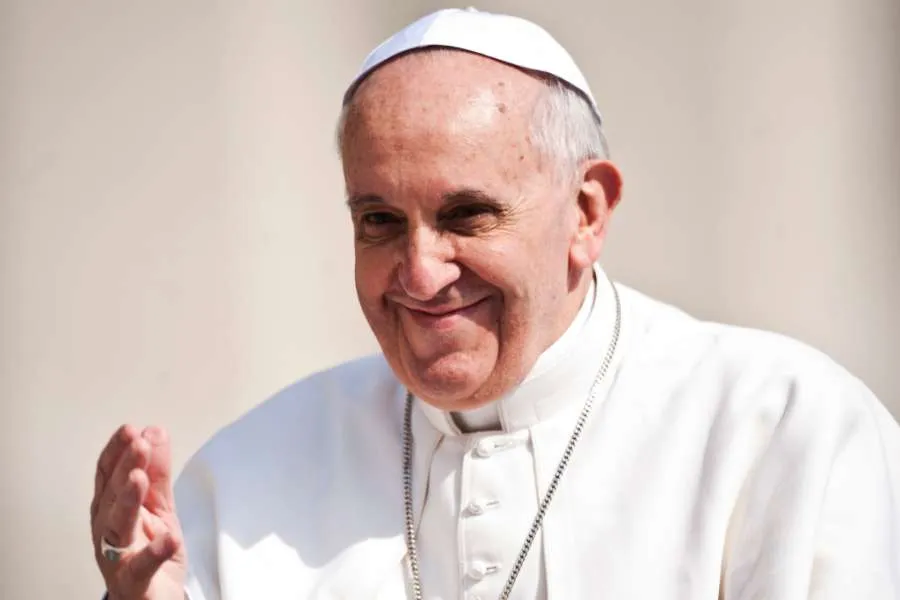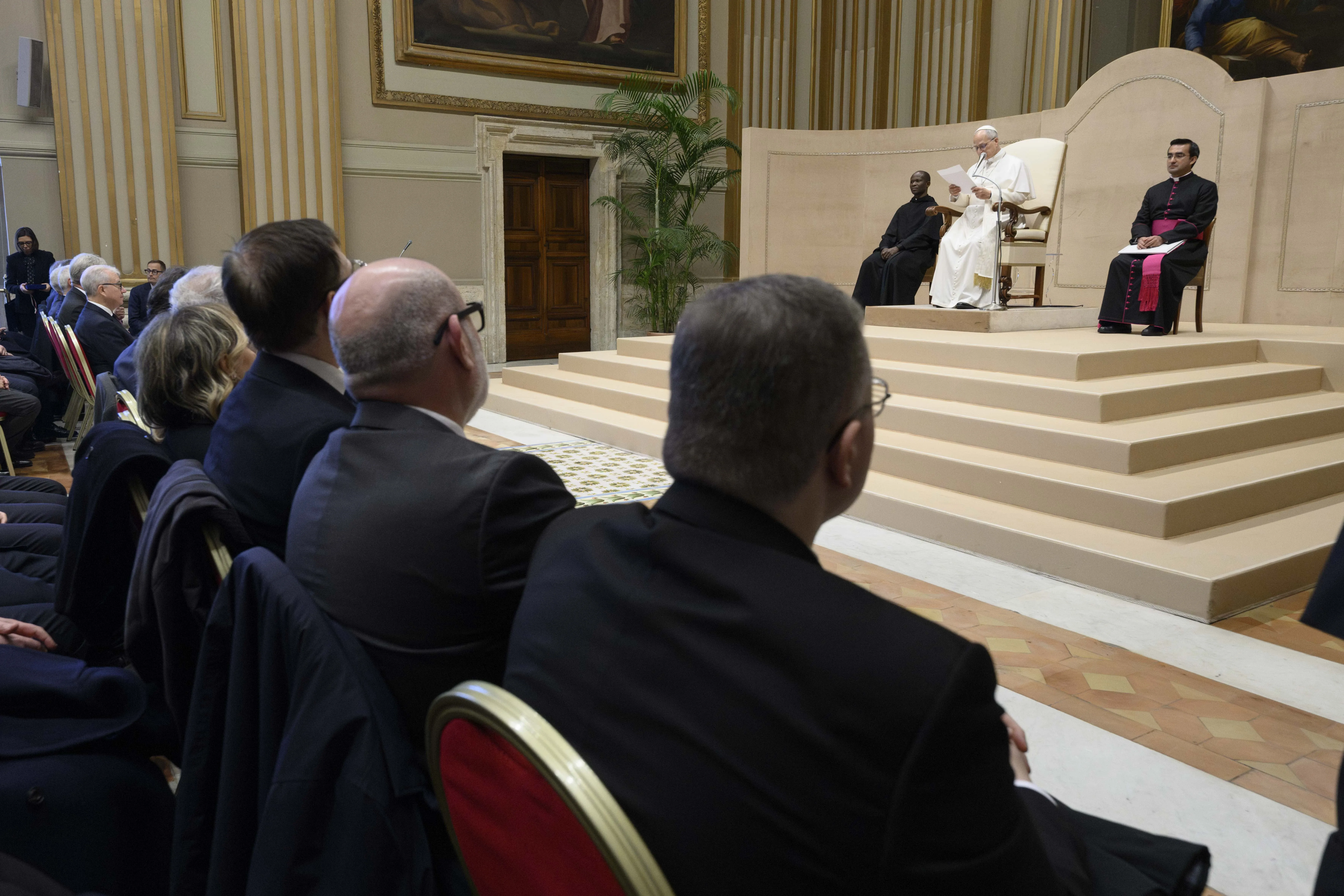In his apostolic letter, Pope Francis reflected on the fatherly qualities of St. Joseph, describing him as beloved, tender and loving, obedient, accepting, and “creatively courageous.” He also underlined that he was a working father.
The pope referred to the saint as “a father in the shadows,” citing the novel “The Shadow of the Father,” published by the Polish author Jan Dobraczyński in 1977.
He said that Dobraczyński, who was declared Righteous Among the Nations by Yad Vashem in 1993 for protecting Jewish children in Warsaw in World War II, “uses the evocative image of a shadow to define Joseph.”
“In his relationship to Jesus, Joseph was the earthly shadow of the heavenly Father: he watched over him and protected him, never leaving him to go his own way,” the pope wrote.
Francis said that the contemporary world required examples of true fatherhood.
(Story continues below)
“Our world today needs fathers. It has no use for tyrants who would domineer others as a means of compensating for their own needs,” he wrote.
“It rejects those who confuse authority with authoritarianism, service with servility, discussion with oppression, charity with a welfare mentality, power with destruction.”
“Every true vocation is born of the gift of oneself, which is the fruit of mature sacrifice. The priesthood and consecrated life likewise require this kind of maturity. Whatever our vocation, whether to marriage, celibacy or virginity, our gift of self will not come to fulfillment if it stops at sacrifice; were that the case, instead of becoming a sign of the beauty and joy of love, the gift of self would risk being an expression of unhappiness, sadness and frustration.”
He continued: “When fathers refuse to live the lives of their children for them, new and unexpected vistas open up. Every child is the bearer of a unique mystery that can only be brought to light with the help of a father who respects that child’s freedom. A father who realizes that he is most a father and educator at the point when he becomes ‘useless,’ when he sees that his child has become independent and can walk the paths of life unaccompanied. When he becomes like Joseph, who always knew that his child was not his own but had merely been entrusted to his care.”
The pope added: “In every exercise of our fatherhood, we should always keep in mind that it has nothing to do with possession, but is rather a ‘sign’ pointing to a greater fatherhood. In a way, we are all like Joseph: a shadow of the heavenly Father, who ‘makes his sun rise on the evil and on the good, and sends rain on the just and on the unjust’ (Matthew 5:45). And a shadow that follows his Son.”
Pope Francis has promoted devotion to St. Joseph throughout his pontificate.
He began his petrine ministry on March 19, 2013, the Solemnity of St. Joseph, and dedicated the homily at his inauguration Mass to the saint.
“In the Gospels, St. Joseph appears as a strong and courageous man, a working man, yet in his heart we see great tenderness, which is not the virtue of the weak but rather a sign of strength of spirit and a capacity for concern, for compassion, for genuine openness to others, for love,” he said.
His coat of arms features a spikenard, which is associated with St. Joseph in Hispanic iconographic tradition.
On May 1, 2013, the pope authorized a decree instructing that St. Joseph’s name be inserted into Eucharistic Prayers II, III, and IV.
During an apostolic visit to the Philippines in 2015, the pope explained why he kept an image of the saint on his desk.
“I would also like to tell you something very personal,” he said. “I have great love for St. Joseph, because he is a man of silence and strength.”
“On my table I have an image of St. Joseph sleeping. Even when he is asleep, he is taking care of the Church! Yes! We know that he can do that. So when I have a problem, a difficulty, I write a little note and I put it underneath St. Joseph, so that he can dream about it! In other words I tell him: pray for this problem!”
At his general audience on March 18 this year, he urged Catholics to turn to St. Joseph in times of adversity.
“In life, at work and within the family, through joys and sorrows, he always sought and loved the Lord, deserving the Scriptures’ eulogy that described him as a just and wise man,” he said.
“Always invoke him, especially in difficult times and entrust your life to this great saint.”
The pope concluded his new apostolic letter by urging Catholics to pray to St. Joseph for “the grace of graces: our conversion.”
He ended the text with a prayer: “Hail, Guardian of the Redeemer, Spouse of the Blessed Virgin Mary. To you God entrusted his only Son; in you Mary placed her trust; with you Christ became man. Blessed Joseph, to us too, show yourself a father and guide us in the path of life. Obtain for us grace, mercy and courage, and defend us from every evil. Amen.”







